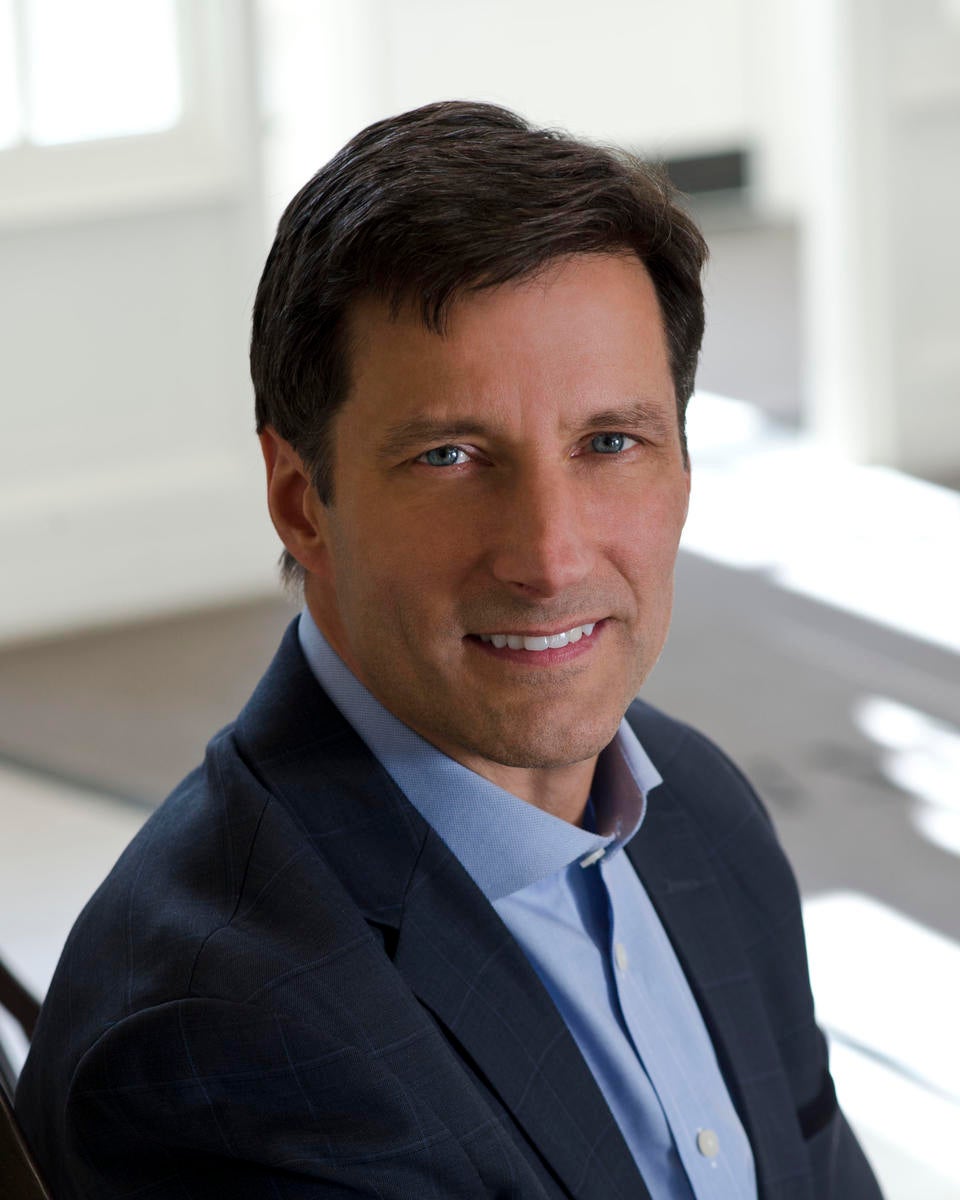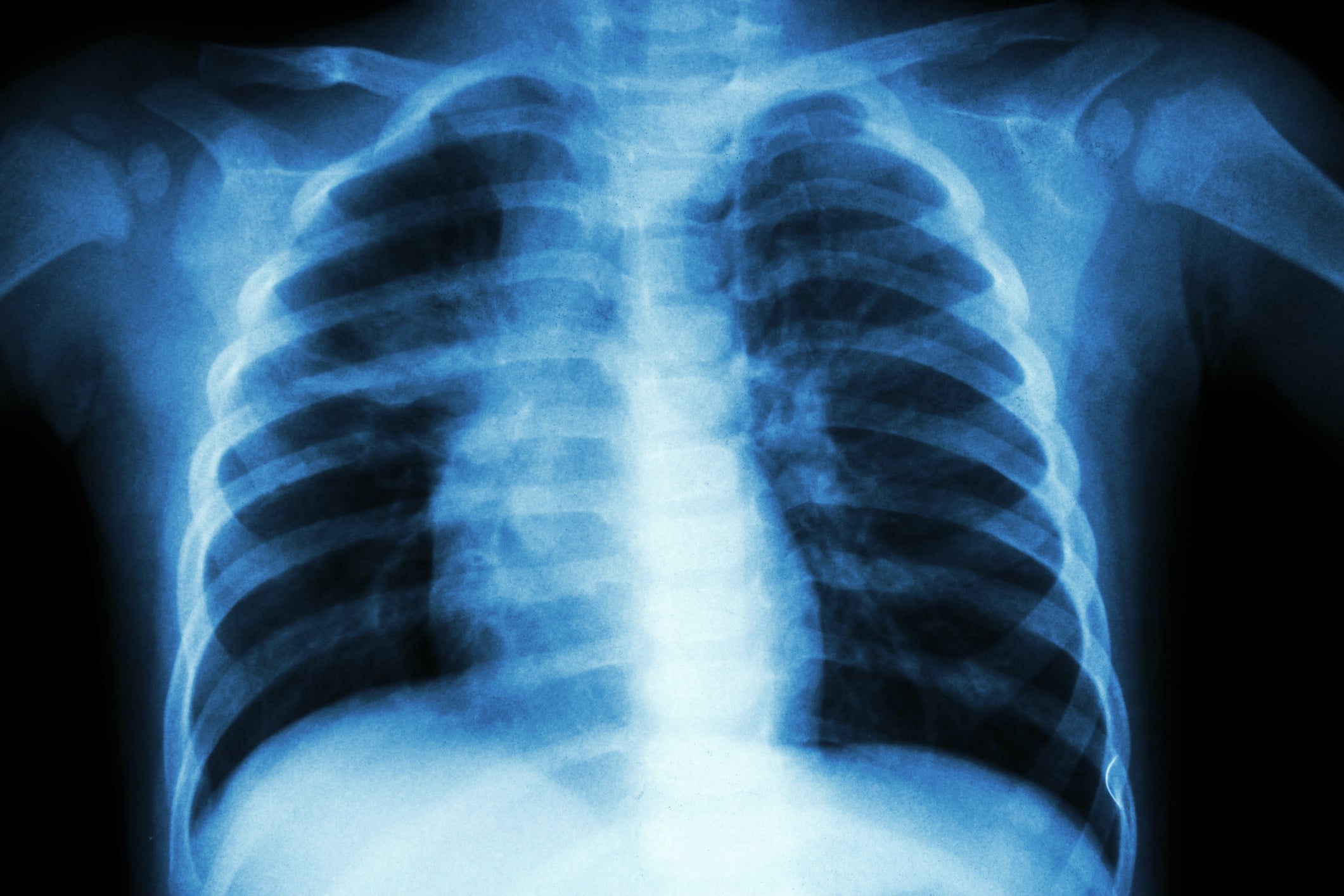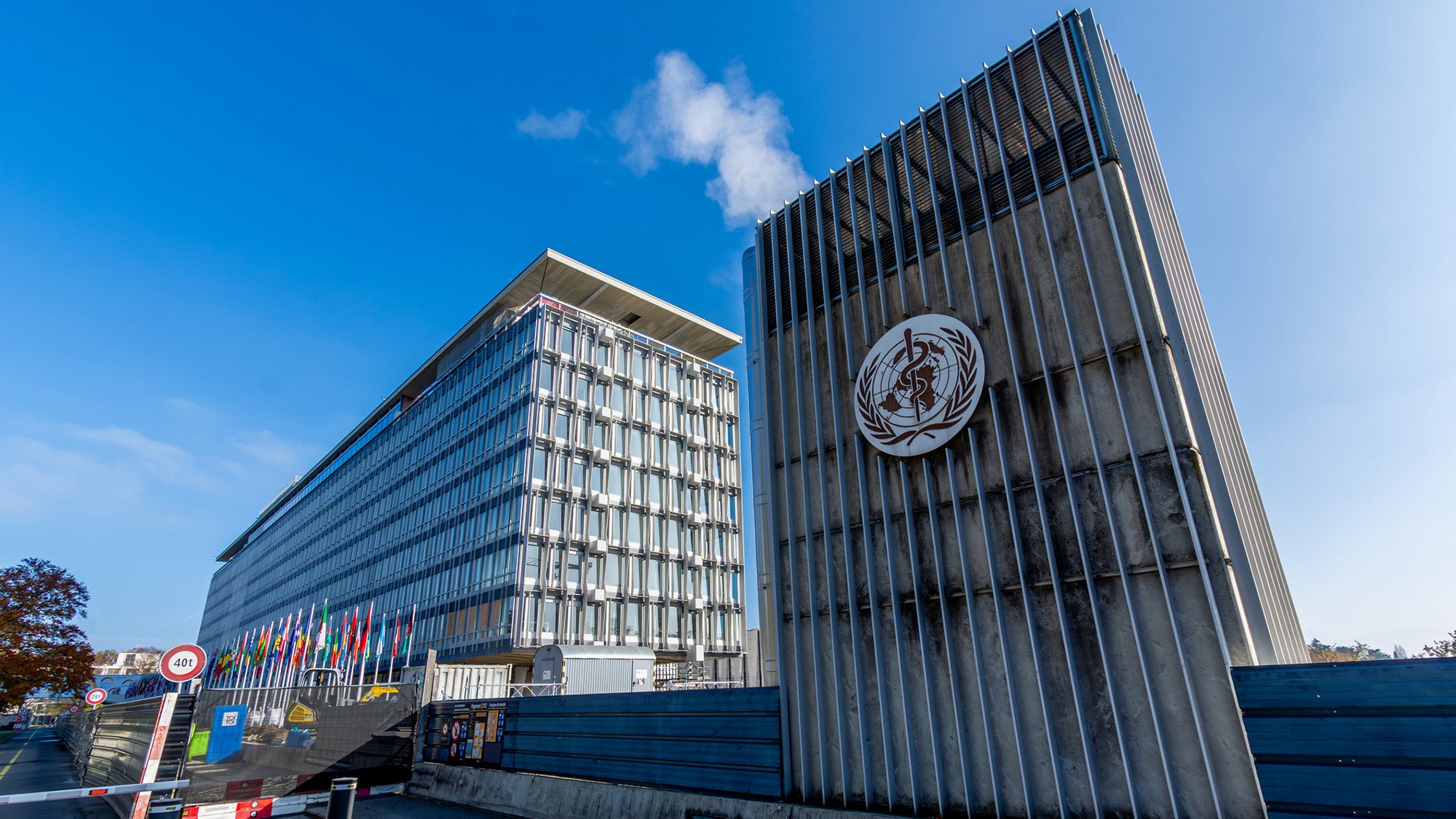WHO director-general Dr. Tedros Adhanom Ghebreyesus receives Elisabeth B. Weintz Humanitarian Award
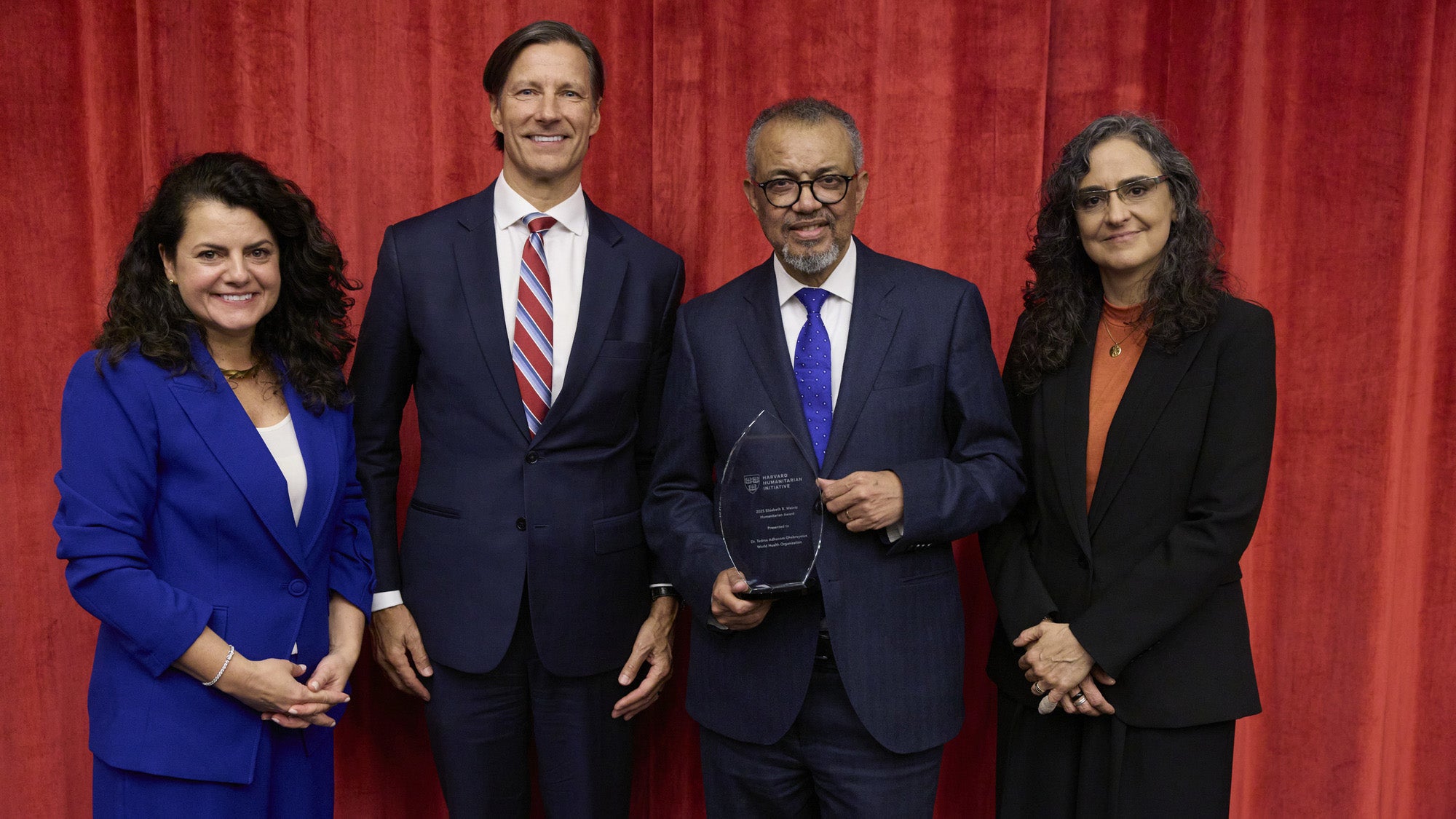
Dr. Tedros Adhanom Ghebreyesus, director-general of the World Health Organization (WHO), received the 2025 Elisabeth B. Weintz Humanitarian Award from the Harvard Humanitarian Initiative (HHI). The award was presented at an Oct. 8 ceremony and lecture at Harvard T.H. Chan School of Health titled “Global Health in a Fractured World.”
Dr. Tedros was recognized for his work as a global humanitarian leader and public health champion. In his remarks, he outlined his efforts to help the WHO and its member states adapt to drastic cuts in global aid funding and called on members of the Harvard Chan School community gathered in Kresge G1 for the event to join in this work.
“We need leaders and policymakers who see health not as a cost to be contained, but an investment to be nurtured in security, stability, and economic prosperity. We need scientists, researchers, and health professionals not only to do their vital work, but to communicate it with courage and clarity,” he said. “And we need citizens to raise their voices for equity and justice. Demand that your leaders invest in health, not as a privilege, but as a fundamental human right for every human being, everywhere.”
It was a return visit to campus for Dr. Tedros, who served as the School’s commencement speaker in 2021. Throughout his career, he has led global health initiatives on HIV/AIDS, malaria, and maternal and child health, coordinated international responses to threats such as Ebola, COVID-19, and mpox, advocated for universal health coverage, and worked to protect civilians in conflict zones. Prior to becoming WHO director-general in 2017, he served in the Ethiopian government as minister of health and minister of foreign affairs.
The event, co-presented by the Harvard Chan Studio, also marked the 20th anniversary of HHI, the University’s hub for advancing the science and practice of humanitarian assistance. Founding director Michael VanRooyen, Lavine Family Professor of Humanitarian Studies in the Department of Global Health and Population, spoke in his introductory remarks about the challenges currently facing public health, especially in the humanitarian sector. “It’s a time when we need strong principled leadership to help guide us, and that’s what we’re here to celebrate today,” he said.
Primary care, peace, and global solidarity
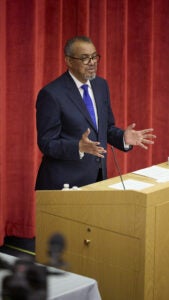
In his remarks, Dr. Tedros emphasized his deep personal commitment to addressing health inequity around the world. He recalled an early memory of walking with his mother in his hometown in Ethiopia and seeing posters about smallpox and the organization that was working to eradicate it—the WHO. He said that at the time all he knew about infectious diseases was that they could quickly cause children to be “snatched away.” His own brother died of a disease that could have been prevented, likely measles, he said.
“Inequity and insecurity were not things I read about,” he said. “They were things I saw and experienced every day. They happened to me, and they happened to my family. And inequity and insecurity continue to be the driving forces of my life and career.”
Despite advances in medicine and public health, there is currently a 31-year gap between countries with the highest and lowest life expectancies, he said. And lack of access to essential health care and adequate nutrition still cause numerous deaths around the world. “Health inequities are not natural or accidental. They are the result of systemic differences in the opportunities people get, the resources they can access, and the power they hold,” he said.
He spoke about three areas where he sees fractures in the world today: health systems, security, and solidarity, which he characterized as bilateral aid and multilateral cooperation.
But he said that despite the gravity of these fractures, his diagnosis for the world is not terminal. They can be healed through actions including strengthening primary health care, promoting peace, and supporting greater global cooperation, he said.
More global engagement, less aid
The WHO is under pressure from funding cuts by the U.S. and other countries, Dr. Tedros said. Earlier this year, member states approved a significantly reduced budget at WHO, and cost savings measures including workforce reductions have been introduced. He said that he is trying to use the current situation as an opportunity to make the WHO stronger, more independent, and focused on its core mandate to serve people around the world. These efforts include greater reliance on scientific partnerships, broadening the WHO’s donor base, and establishing an endowment.
The WHO has also learned from COVID-19, he said, and is working with member states and partners on ensuring a more coordinated response to future pandemics—for example, through establishment of an mRNA technology transfer hub and adoption of a pandemic agreement.
In addition, Dr. Tedros said that the WHO is supporting countries that are ready to transition from aid dependency to sustainable self-reliance. This work includes identifying ways to improve efficiency and generate new revenues for health from domestic resources such as sales taxes on tobacco, alcohol, and sugary drinks.
“In the end, the fractures in our world are fractures in our politics and in our collective will. But I believe it’s within our power to mend them,” he said. “We have the tools. We have the knowledge. What we need now is the courage to make the right choices—to choose solidarity over nationalism, equity over greed, and evidence over ideology.”
Support for humanitarian research and education
The Weintz Award recognizes individuals with a record of achievement and impact in the humanitarian field who have demonstrated an extraordinary contribution towards alleviating human suffering.
The award was established in 2015 by J. Frederick Weintz to celebrate his late wife Elisabeth “Betsy” Weintz. The Weintzes were early supporters of creating a program at Harvard focused on improving the humanitarian response to global crises through research and education, which, with their ongoing support, evolved into the Harvard Humanitarian Initiative.
In her introductory remarks, Marcia Castro, Andelot Professor of Demography and chair of the Department of Global Health, recognized members of the Weintz family who were in attendance. At a time when funding for global aid has been cut and public health research remains under threat, generosity like theirs is needed more than ever, she said.
